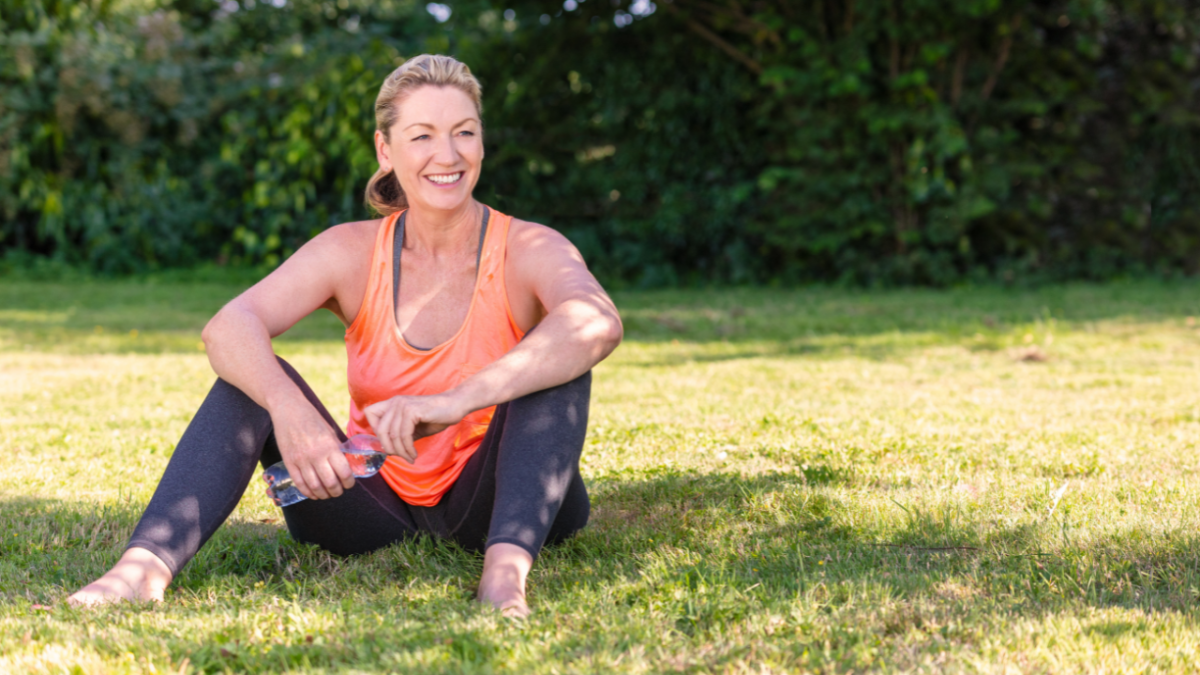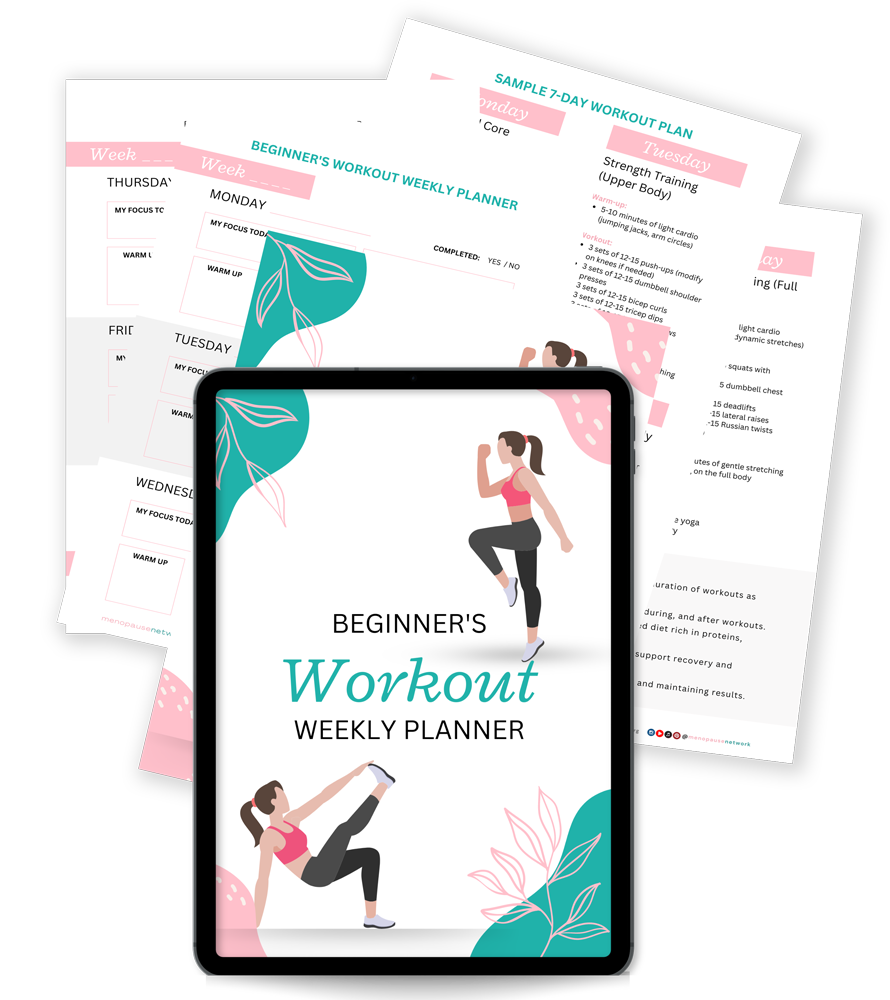Why Exercise Is a Game-Changer for Menopausal Women (+ Free Planner)

Welcome to the club—menopause! While it comes with its fair share of changes, don’t worry too much. Lacing up your sneakers and getting active might just be your best strategy to boost your mood and energy levels during this time. This blog dives into how a simple 12-week exercise program can transform the menopausal experience. From lifting spirits to enhancing vitality, we’ll explore why moving more isn’t just good advice—it’s essential. Ready to feel better? Let’s find out how a little sweat can lead to big smiles during menopause.
The Study That Shows How Moving Matters
Let’s zoom in on a study from Silesia, Poland, where researchers took a close look at how 12 weeks of regular exercise can affect women going through menopause. They gathered 80 women aged 40-65, randomly split them into exercisers and non-exercisers, and tracked their quality of life using a nifty tool called the SF36 Health Survey. The exercise routine? A practical mix of walking, stretching, and strength training with elastic bands.
The Results: A Big Boost in Energy and Mood
Post study, the results were pretty clear. After 12 weeks of exercise, the group of women that exercise did show meaningful improvements in two specific areas: vitality and mental health. Specifically, their sense of energy and well-being (vitality) saw the biggest boost with an increase of nearly 5 points, and their mental health also improved significantly compared to those who did not exercise. In simpler terms, the exercisers ended up feeling more energetic and mentally better than the non-exercisers.
Why Hitting the Gym (Or the Pavement) Makes Sense
Hitting the gym or the walking trail does more than just help you keep your physical shape—it’s like a natural mood lifter. Physical activity kicks up endorphins, those feel-good chemicals that make us feel lighter and happier. Plus, staying active can help improve sleep patterns and boost self-esteem—both super important when your body’s going through such a big transition.
Challenge Yourself! Start Your Own 12-Week Exercise Now!
If you want to track your results more accurately, we suggest filling out the SF36 Health Survey before you start and again after completing the 12-week challenge. You can find a guide on how to interpret your results here. We’d love to hear about your journey, so feel free to share your results with us!

Download Your Free Beginners 7-Day Workout Planner!
Tips to Get Moving and Feel Great
Starting an exercise routine doesn’t have to be daunting. Here are a few easy tips to weave in more activity:
- Take It Easy: Start with something manageable like walking or gentle yoga, and then turn up the intensity as you feel more comfortable.
- Stick With It: Try to get at least 150 minutes of moderate activity or 75 minutes of something more vigorous each week.
- Add Variety: Sprinkle in some strength training sessions to help maintain muscle mass and bone health.
- Keep Motivated: Set achievable goals and keep track of your progress. Joining a class or finding an exercise buddy can also make staying active more fun.
Wrap-Up
Transitioning into menopause is a natural part of life, but it doesn’t have to drag down your quality of life. Regular exercise isn’t just helpful—it’s crucial for keeping up your spirits and energy levels during menopause. Armed with the right information and a bit of motivation, you can turn menopause into a positive phase of renewed focus on your health and well-being. Here’s to feeling—and living—better!
